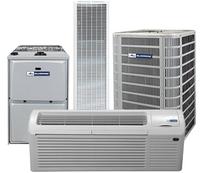Air conditioning (AC) units and HVAC (Heating, Ventilation, and Air Conditioning) systems are both designed to control indoor climate and improve comfort. However, they serve different purposes and have distinct functionalities. Here’s why regular AC units cannot replace the comprehensive capabilities of HVAC systems:
Regular air conditioners are designed solely for cooling. They extract heat from the indoor air and expel it outside, providing a cool environment. However, they are ineffective in colder climates where heating is required. HVAC systems offer both heating and cooling functions. They can efficiently heat your home during the winter months and cool it during the summer, providing year-round comfort.
Standard AC units do not include ventilation features. They do not manage indoor air quality, which can lead to stale air and increased levels of indoor pollutants. HVAC systems also incorporate ventilation to ensure a constant flow of fresh air. This improves indoor air quality by reducing pollutants, allergens, and moisture, making the environment healthier and more comfortable.
While AC units can filter out larger particles like dust, they are not equipped with advanced filtration systems to remove smaller particles, bacteria, and viruses from the air. HVAC systems are often equipped with advanced filtration and purification systems. These systems can significantly improve indoor air quality by removing fine particles, allergens, and pathogens, creating a healthier living space.
While regular air conditioners are effective for cooling small spaces or individual rooms, they cannot match the comprehensive capabilities of HVAC systems. HVAC systems provide heating, ventilation, advanced air quality control, and energy efficiency, making them the ideal choice for creating a comfortable, healthy, and efficient indoor environment year-round. Investing in an HVAC system ensures you get the most out of your climate control needs, providing benefits that extend beyond just cooling.!

